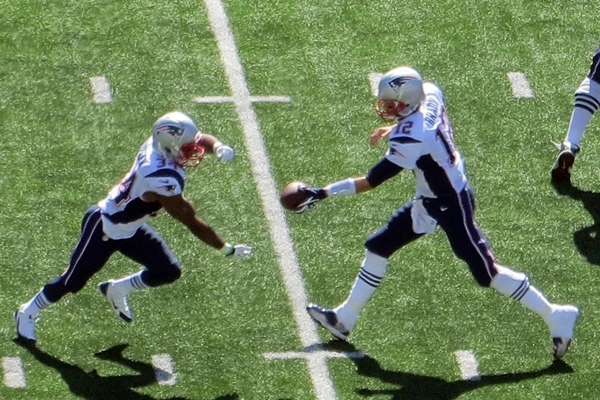25 January 2017. A clinical trial is planned of a blood test to detect an indicator of chronic traumatic encephalopathy. or CTE. a neurodegenerative disease associated with collision sports. The study, with former players in the National Football League, will be conducted by a Exosome Sciences in San Diego, a subsidiary of medical device maker Aethlon Medical Inc.
Exosome Sciences develops diagnostics for disease based on exosomes, tiny — 40 to 150 nanometer — lipid-membrane containers in cells that gather up and secrete cytoplasm, the gel-like material outside the cell nucleus. While originally believed to carry out waste removal and other maintenance tasks, exosomes were shown in recent years to perform useful delivery functions carrying proteins and genetic material to other cells, and drawing increased attention from a range of biological disciplines.
The main product from Exosome Sciences is a test in development for CTE, a disease that develops in athletes playing collision sports, such as American football and rugby, as well as military veterans encountering repeated head impacts. The disease is associated with progressive degeneration of brain tissue, as well as a build up of abnormal protein deposits known as tau. Brain degeneration from CTE is characterized by a number of disorders including depression, memory loss, confusion, impaired judgement, and aggression, sometimes leading to dementia and suicide.
Much of the research on CTE is carried out by Boston University’s medical school that studies the brains of former athletes after their death. In 2012 the university’s CTE center reported the brains collected from 68 of 85 former athletes had CTE, of which 34 were former NFL players. One of the cases studied in more depth by the lab was lineman Tom McHale, who played most of his career with the Tampa Bay Buccaneers, and who died from a drug overdose in 2008 at age 45. McHale was a teammate with Jim Joyce at University of Maryland, the founder of Aethlon Medical and Exosome Sciences.
The new clinical trial will test for the presence of plasma exosomal tau — tau proteins carried by exosomes in blood plasma — in some 200 retired NFL players. Plasma exosomal tau is a biomarker for CTE, which was studied by Boston University researchers in 78 former NFL players, and reported in April 2016. In that study exosomes were extracted from the blood plasma and analyzed for tau content with fluorescent nanoparticles. When compared to 16 non-athletes, the NFL players had much more exosomal tau. In addition, former players with more tau in their blood scored lower on memory tests.
The new study will be led by Kendall Van Keuren-Jensen, with the Translational Genomics Research Institute’s Center for Noninvasive Diagnostics in Phoenix. Van Keuren-Jensen and colleagues study discovery and detection of biomarkers for central nervous system disorders and injuries. Exosome Sciences expects the trial to begin in the second quarter of 2017.
“This study provides researchers an opportunity to potentially change how doctors diagnose CTE, which today can only be diagnosed post-mortem,” says Van Keuren-Jensen in a company statement. “Validating plasma exosomal tau as the basis for a non-invasive test to detect and monitor CTE in living individuals will expand significantly the body of clinical data available for analysis and may provide a starting point for early intervention.”
Company CEO Jim Joyce, who played in the NFL with the Denver Broncos, plans to raise awareness of the study among retired players in the week preceding the NFL Super Bowl championship game in Houston on 5 February. Joyce expects to take part in the the Global Brain Health Coalition’s annual meeting and hold discussions with former players to establish an advisory committee for the project.
Read more:
- Grant Funds MRI for Mental Illness Understanding
- Genetic Tests, Elec. Health Records Show Hidden Disease
- Project to Design Hybrid Stroke Imaging Technology
- LEDs Shown to Reduce Alzheimer’s Brain Plaques
- Trial to Test Radio Waves to Treat Alzheimer’s
* * *


 RSS - Posts
RSS - Posts
You must be logged in to post a comment.